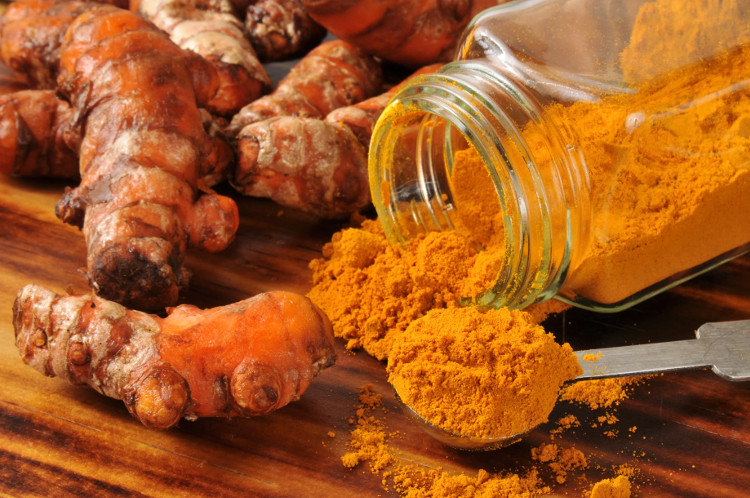With 20 antibiotics, 12 anticancer agents, the effect of turmeric is beyond expectations
From 4,500 years ago, technology has been used primarily in Asia both in cooking and treating many diseases from digestion, joint . to skin wounds. Today, turmeric is a potential medicine for cancer treatment, heart disease, psoriasis, Alzheimer's .
Experts have found in technology at least 20 antibiotics, 14 cancer prevention substances, 12 antitumor agents and at least 10 powerful antioxidants. Therefore, anti-oxidant, anti-inflammatory, anti-virus, anti-cancer inhibitors are highly appreciated.
The use of technology is very rich

She has discovered that eating turmeric processed in food provides more benefits than curcumin.
The Arthritis Foundation reports that turmeric can relieve pain and improve long-term function for people with arthritis.
Curcumin is good for cancer treatment , it kills cancer cells without hurting normal cells. At the same time can increase the effectiveness of chemotherapy and radiation therapy.
Doctor Saraswati Sukumar, a cancer specialist at Johns Hopkins University, has participated in hundreds of studies on the impact of turmeric on cancer. She has discovered that eating turmeric processed in food provides more benefits than curcumin.
Turmeric can reduce cortisol, a stress hormone that causes stress and boosts serotonin, a neurotransmitter associated with happiness. Moreover, this is a safe and long-term antidepressant.
Elderly people in India regularly use turmeric during meals and they have the lowest incidence of Alzheimer's in the world.Turmerone in turmeric will stimulate the production of new neurons, prompting the brain to repair itself. Thus, turmerone has a positive effect on a variety of brain degenerative diseases such as Parkinson's, traumatic brain damage, stroke .

Turmeric can reduce cortisol, a stress hormone that causes stress and strengthens serotonin levels.
How to use technology?
The most important active ingredient in turmeric is curcumin but it is difficult to absorb in turmeric. However, when adding black pepper, piperine in black pepper increases absorption up to 2 times. Curcumin is soluble in fat so when cooking turmeric with oil, it will enhance the absorption efficiency significantly.
People in Okinawa, Japan have a very high life expectancy, averaging 81.2 years. The reason may be because they drink a large amount of turmeric tea. When boiled turmeric with water for 10 minutes increases curcumin solubility up to 12 times. You just need to put 1/2 teaspoon of turmeric in 1 cup of boiling water and simmer for 10 minutes but turmeric tea is very bitter, not everyone can easily drink.
Side effects and people should avoid using
Using turmeric as a spice in food processing is considered safe. Almost turmeric does not bring any side effects. However, with functional foods from turmeric there are many side effects, drug interactions and warnings that can occur.

Pregnant women should not use turmeric products.(Photo: Internet).
Experts recommend that the following groups should not drink curcumin or turmeric supplements:
- Women who are pregnant or trying to conceive.
- Cancer patients with reproductive, endometriosis, or fibroids.
- Gallstones or gallbladder disease. Turmeric can make matters worse.
- People who are going through surgery in the next two weeks. Turmeric increases the risk of bleeding.
- People taking anticoagulants such as aspirin, clopidogrel, diclofenac, ibuprofen, naproxen and warfarin. Turmeric increases the risk of bruising and bleeding.
- If you have gastroesophageal reflux, ulcers, or other stomach problems that are using western medicine.
- You take medicine to reduce stomach acid. Turmeric can interfere with the activities of drugs such as Zantac, Tagamet, and Nexium, which increase gastric acid production.
- You take diabetes medicine. Turmeric increases the risk of hypoglycemia (low blood sugar).
- You have iron deficiency. Turmeric can prevent iron absorption.
- Golden turmeric is anti-cancer
- How to make simple home turmeric
- How to identify pure turmeric
- Unexpected benefits of turmeric tea that you don't know yet
- What are antibiotics and classify antibiotics
- Detection of anticancer agents found in spices in Vietnam
- The accidental scientific discovery possible
- Parsley and cumin prevent cancer
- How to use antibiotics for safety
- Eating this food all your life does not require antibiotics
- Sugar increases the therapeutic effect of antibiotics
- Black or yellow turmeric better?
 Green tea cleans teeth better than mouthwash?
Green tea cleans teeth better than mouthwash? Death kiss: This is why you should not let anyone kiss your baby's lips
Death kiss: This is why you should not let anyone kiss your baby's lips What is salmonellosis?
What is salmonellosis? Caution should be exercised when using aloe vera through eating and drinking
Caution should be exercised when using aloe vera through eating and drinking